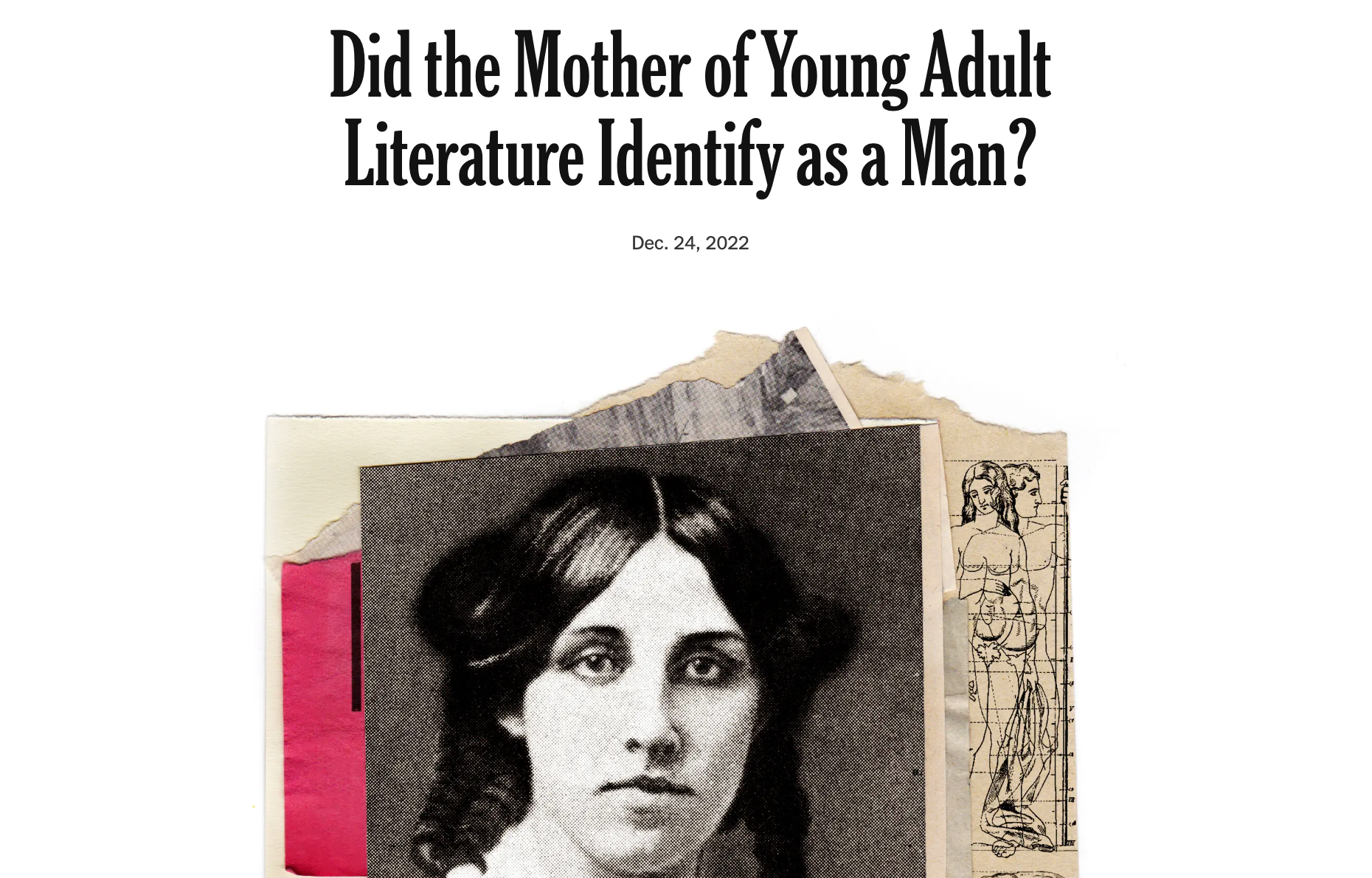Too many women have been written out of history, their work forgotten or attributed to men. One of the triumphs of 1970s feminism was to rediscover neglected female authors and artists, restoring the reputations of everyone from the painter Artemisia Gentileschi — subject of a recent exhibition at the National Gallery in London — to the novelist Antonia White. So it’s infuriating to see the process going into reverse, thanks to a campaign by trans activists to claim famous women as transgender.
The latest target is Louisa May Alcott, author of Little Women. ‘Did the Mother of Young Adult Literature Identify As a Man?’ asks an opinion piece in the New York Times. I’m not sure that ‘young adult literature’ was a thing in the 1860s and I doubt whether any human being ‘identified’ as anything — man, woman, St. Bernard — until the last decade. But the paper is evidently back on message, showcasing trans ideology after a recent article dared to question the use of puberty blockers in gender non-conforming children.
The most popular character in Little Women, Jo March, is exactly that. She has been adored by girls ever since the novel was published, with a climactic scene in which Jo refuses the marriage proposal that was supposed to be the cherished prize of every Victorian woman. She expressed Alcott’s own frustration about the limitations imposed on women at a time when separate sex roles were believed to be immutable.
For gender warriors, however, such feminist stirrings must mean something else. The real purpose of the NYT article is to ask a much more explosive question, which doesn’t appear until the fourth paragraph: ‘Is Alcott best understood as a trans man?’ The answer is obviously ‘no’ but the paper is coy about the identity of the author, Peyton Thomas. He says he is writing a novel described as ‘a contemporary interpretation of Little Women’, but the NYT doesn’t mention the fact that Thomas is a trans man.
‘I haven’t yet seen an adaptation that gives Jo the gift of transition she’s spent 154 years begging for,’ Thomas wrote in an earlier article for the Oprah Daily website. ‘So I’m writing my own.’ (There may, I think, be quite a bit of projection going on here.)
Alcott was known as Lou to her family, talked about having ‘a boy’s spirit’ and said she longed to be a man. She might have felt very differently if she had been born in another century, when many more occupations were open to women, but that doesn’t suit the trans agenda. ‘Why not take Lou at his word?’ Thomas demands in the NYT.
I assume that the use of a male pronoun for a celebrated female author is intended to be daring and clever, but it’s actually erasure. No historical figure is safe from an ideology so invested in traditional sex roles that it insists successful women from the past must have been…something else. Joan of Arc got the treatment earlier this year, in a production at the Globe Theatre in London that presented her as non-binary and used they/them pronouns.
This practice of trans-ing famous women from the past exposes the suffocating orthodoxy at the heart of gender ideology. It presents history as a dressing-up box, full of female figures just waiting to be stripped and dressed as men. Famous women are disappearing before our eyes — and it’s misogyny in its purest form.











Join the discussion
Join like minded readers that support our journalism by becoming a paid subscriber
To join the discussion in the comments, become a paid subscriber.
Join like minded readers that support our journalism, read unlimited articles and enjoy other subscriber-only benefits.
Subscribe